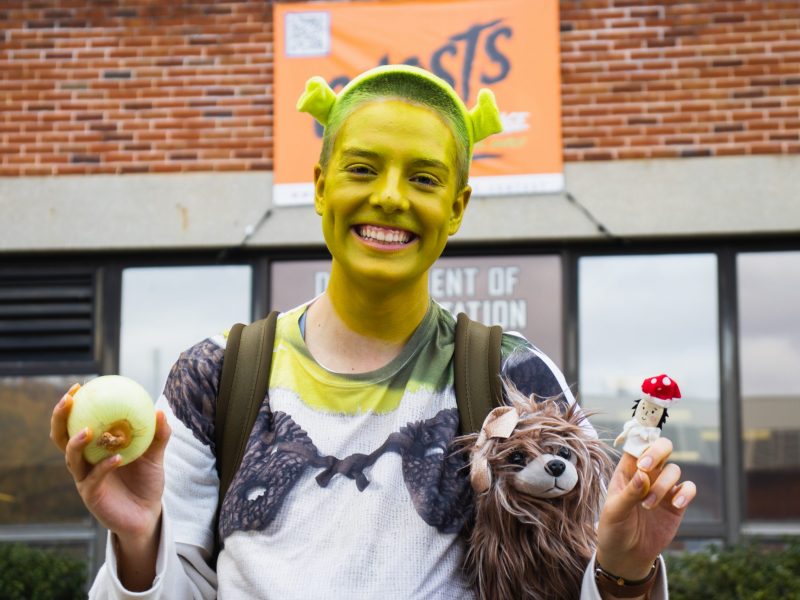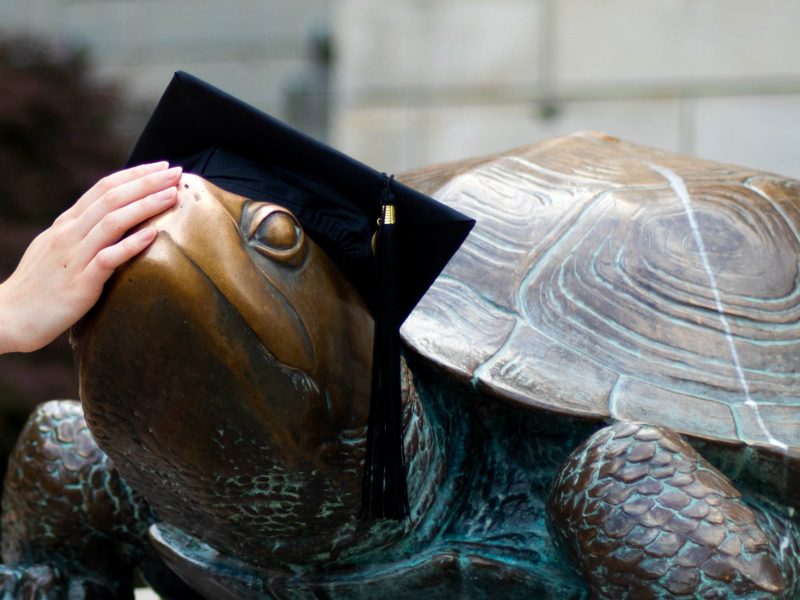If you are spending too much time doomscrolling recently, you may have seen people online making fun of “pretty girl humor.”
USA Today defines “pretty girl humor” as “conventionally attractive women who attempt to seem quirky or relatable by subverting typically feminine behavior.” Examples of pretty girl humor include an infatuation with the name “Bob,” calling popular and mainstream things “nerdy” and an obsession with outdated memes.
The trend gained traction over Halloween when many women opted for masculine and humorous costumes, such as The Lorax or Hamilton.
[Guillermo del Toro gives new life to ‘Frankenstein’ in latest adaptation]
In response to these comedic attempts, people online expressed gratitude that they grew up weird instead of “pretty” and without a sense of humor. The general consensus seems to be that unattractive people learn to compensate for their looks through humor and pretty people never have to.
This is not a new phenomenon — women online are often dissed for attempts at being relatable. The term “quirky” has held a negative connotation for some time. “Pretty girl humor” calls to mind the mustache-loving millennials of the early 2010s, an all but extinct group that overlaps heavily with the often derided “manic pixie dream girl” concept.
But this trend calls to mind an imperative question — why are people actually doing this? Seriously.
In an era of fast-paced, gluttonous media consumption, we can all benefit from slowing down and fully unpacking the trends we consume. Why are people using the label “pretty girl humor” to, in essence, make fun of strangers online?
Some viewers may consider this trend a way of “punching up” or resisting the persistent influence of attractive people in our society. Conventionally pretty girls such as Sydney Sweeney seem to gain power from their appearances. Based on this, those with “pretty girl humor” are seen as deserving of the criticism by virtue of their privilege.
Others claim those with “pretty girl humor” are the same type of people who would bully them as children, so criticism of their unfunniness is morally justified.
This form of rationalization is common online: bullying is okay as long as they really deserve it. Bad people are always fair game.
At the same time, some people argue the phrase is an extension of society’s constant criticism of women. Halloween costumes of corsets and stockings are lampooned as provocative and attention-seeking, but self-effacing Lorax staches are cringey and trying too hard to be different. There is no correct way to be.
The real underlying issue with the “pretty people humor” concept goes deeper than everyday internet misogyny. It speaks to the current wave of bullying online that has made social media a hostile landscape.
Why are these people being made fun of? Because their cringiness shows privilege? Because they weren’t teased growing up? The anonymity of online spaces makes these reasons feel more valid than they are. In reality, a person’s unfunniness is not an adequate cause for bullying.
[2026 Grammy nominations signal Recording Academy’s disconnect from pop culture]
Disrespecting strangers is far too normalized on social media. We disregard it and accept that putting oneself online means consenting to hate comments. But trends like these ask us to forget our empathy in favor of a cheap laugh. The more we participate, the more humanity we lose.
No matter what “pretty people” may represent in the grand scheme of our superficial society, we all need to remember that they are people first. Even when they are sporting orange jumpsuits and bushy yellow mustaches, they are people.
And so are we.



